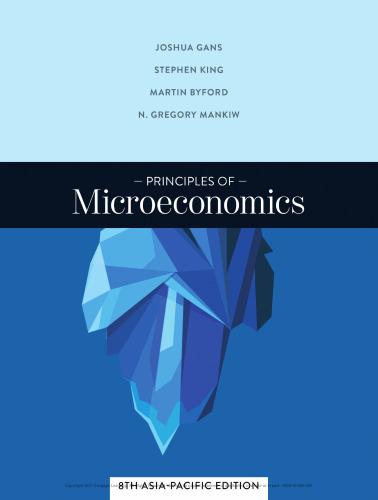11 The Pharmaceutical Benefits Scheme subsidises the price of prescription medications. Demand for prescription drugs is inelastic...
Question:
11 The Pharmaceutical Benefits Scheme subsidises the price of prescription medications.
Demand for prescription drugs is inelastic due to the lack of close substitutes, while supply is relatively elastic.
a Use a supply-and-demand graph to illustrate the equilibrium in the market for prescription medications without a subsidy.
b On the same graph show the effects of a $10 per prescription subsidy paid to drug companies. What happens to the equil ibrium quantity?
c Do buyers or sellers benefit the most from the subsidy1 Explain your answer.
d The government, noticing that drug companies are unpopular, decides to pay the $10 subsidy to consumers instead. What effect does this change in policy have on the price paid by consumers, the price received by drug companies, and the size of the prescription drug market? Explain your answer
Step by Step Answer:

Principles Of Microeconomics
ISBN: 125206
8th Edition
Authors: Joshua Gans, Stephen King, Martin Byford, N Gregory Mankiw






